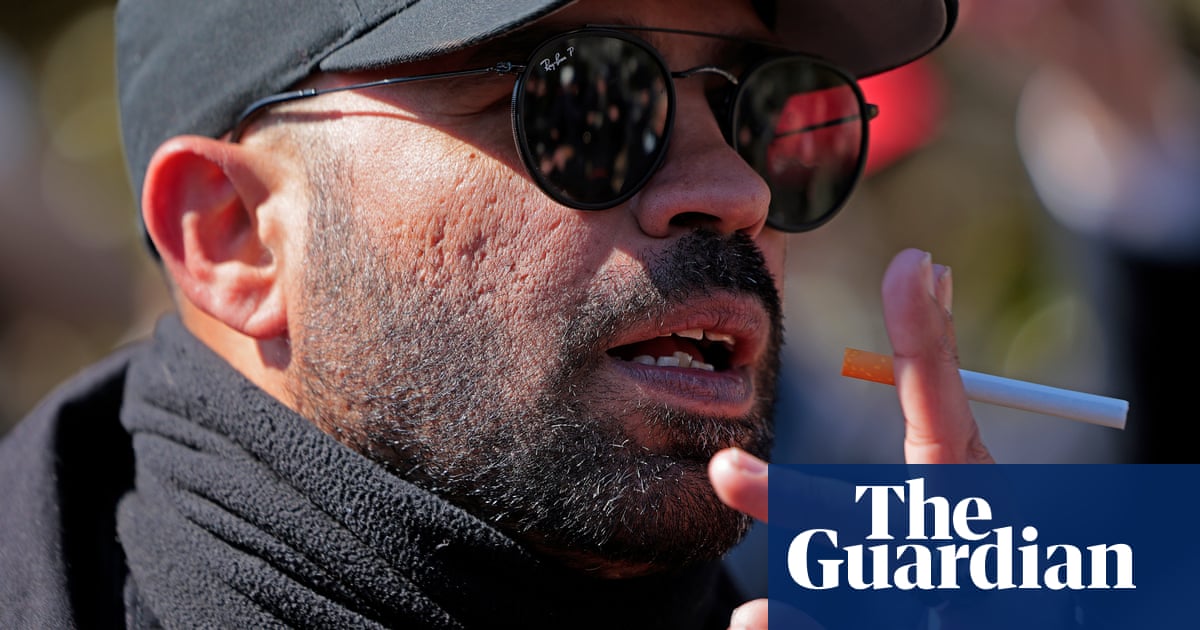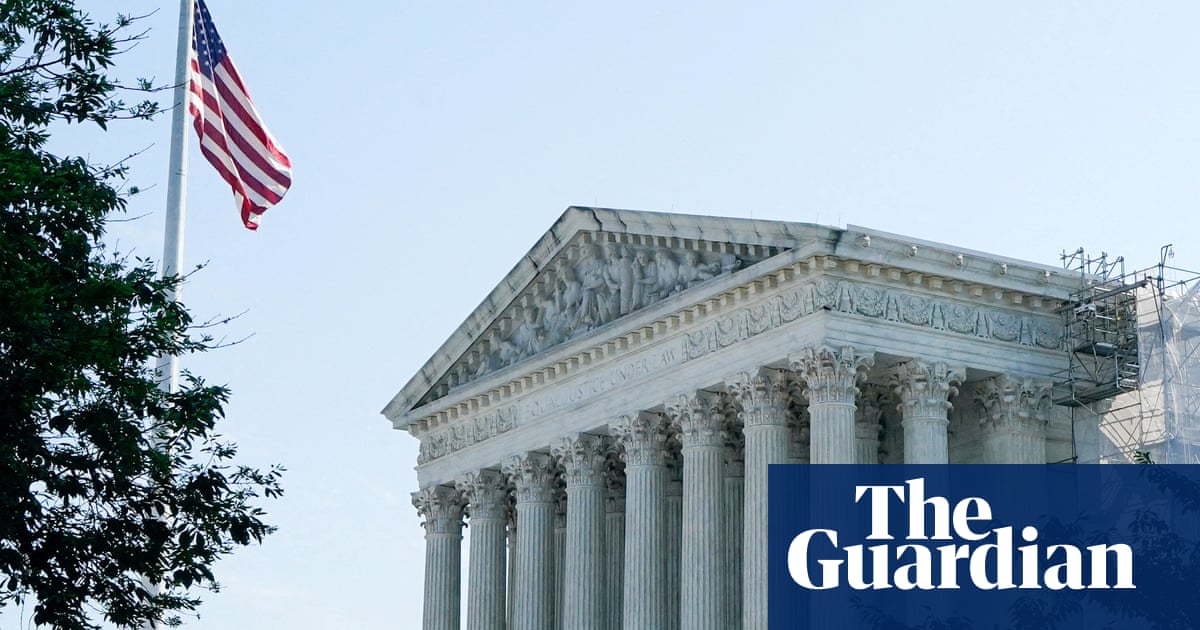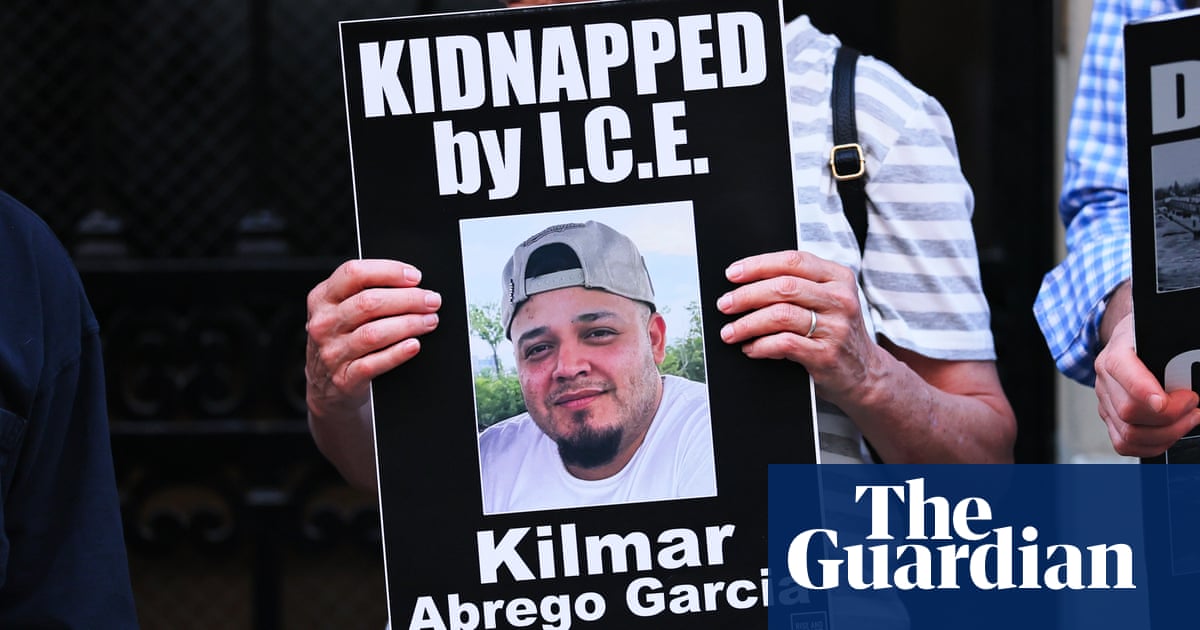The identity of a second man illegally deported from the US by the Trump administration in defiance of a court order and now in detention in El Salvador has been revealed.
Daniel Lozano-Camargo, a 20-year-old Venezuelan, was deported to El Salvador’s notorious Cecot terrorism confinement facility in March under the White House’s invocation of the Alien Enemies Act, Politico reported.
His deportation came after authorities declared him, along with about 240 other men, to be a member of Tren de Aragua, a Venezuelan gang that the US government has defined as a terrorist organization. Lozano-Camargo’s family members deny that he has gang affiliations.
Politico revealed Lozano-Camargo’s identity after a Maryland judge last month ruled that the Trump administration had improperly removed him in violation of a 2024 legal settlement that forbade immigration authorities from deporting him while his application for asylum was pending.
The judge, Stephanie Gallagher, who was appointed to the bench by Trump, ordered officials to “facilitate” Lozano-Camargo’s return to the US. So far, the administration has not complied.
He is reported to have entered the US in 2022 as an asylum seeker, initially spending time in a facility for underage migrants until he turned 18.
According to Politico, he was subsequently twice arrested for possession of cocaine, most recently last November, and was sentenced in January to 120 days in prison. It was from there that he was transferred to the custody of the Immigration, Customs and Enforcement authority (Ice), which filed an application for his detention, claiming that he was in the country illegally.
In her ruling, Gallagher agreed with immigrant rights advocates that Lozano-Camargo should not have been deported until his asylum application was resolved. While withholding his identity by referring to him only by a pseudonym, “Cristian”, she said he was “fleeing danger and threats in Venezuela”.
Politico said Lozano-Camargo’s identity was disclosed in metadata embedded in government court filings.
A justice department court filing released on Monday disputed the judge’s assessment, saying he belonged to “a violent terrorist gang”, thus disqualifying him from asylum in the US. Bringing him back to the US “would no longer serve any legal or practical purpose”, justice department lawyers wrote.
Gallagher was due to further rule on the matter in a Baltimore court on Tuesday.
Lozano-Camargo’s case resembles that of Kilmar Ábrego García, a Maryland resident who was deported to El Salvador in March despite a previous court order issued in 2019 establishing that he had protected status because he was at risk of violence if he was returned to the country of his origin. Ábrego García is Salvadorian by birth. The US government, which has claimed that he is a member of the MS-13 gang – something Ábrego García denies – admitted that he had been deported by mistake but has defied court orders to return him to the US.
after newsletter promotion
Ábrego García was removed from the US on the same set of flights as Lozano-Camargo but has been transferred from Cecot to another facility because of the international publicity surrounding his case.
Lozano-Camargo’s family has tried to draw attention to his plight in social media posts. His mother, Daniela, has proclaimed his innocence in a tearful Facebook video.
Possessing a valid work permit, he is said to have been living in Houston and washing cars for a living before his detention.
His deportation was among those highlighted by the Guardian in March, amid speculation that he was one of hundreds of Venezuelans singled out for removal on the basis of their tattoos, which authorities claimed identified them as members of Tren de Aragua.
Lozano-Camargo is said to have several tattoos, including one bearing the name of his father – who died when he was a child. Critics say Tren de Aragua members do not use tattoos to advertise their membership of the gang.

 German (DE)
German (DE)  English (US)
English (US)  Spanish (ES)
Spanish (ES)  French (FR)
French (FR)  Hindi (IN)
Hindi (IN)  Italian (IT)
Italian (IT)  Russian (RU)
Russian (RU)  1 month ago
1 month ago
























Comments